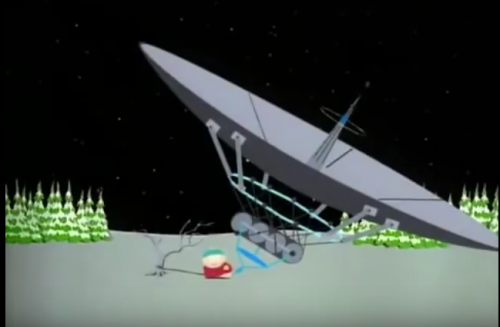Inverse has a short thing about the precipitous decline of reported close encounters with extra-terrestrials following the widespread adoption of smartphones. Author Ryan Britt asks, “How come there have been fewer reports of flying saucers and alien abductions in the age of the camera phone?” The answer is, essentially, UFOs and abduction stories don’t work at the high resolutions of our devices. Roswell and abductions are the products of eye witness accounts and fuzzy VHS video, not 4k videos captured on iPhones. The mundane enchantment of suburbia, as I’ve called it before, gets deleted as noise in an attempt to capture life in the photo-realistic.
This is certainly a compelling argument. After all the timing works out: Britt notes that the 80s and 90s “were the peak of UFO interest in the United States. Proof? The vast majority of famous books published about UFOs and government cover-ups — most notably The Roswell Incident by Charles Berlitz and William L. Moore — were published in these two decades.” Add to that the popularity of The X-Files and Unsolved Mysteries and you have a pretty clear timeline for the birth and death of mundane enchantment. As cameras proliferate the quest to capture the elusive and the strange falls off. It would be a paradox if it weren’t so pat.
The loss of modern American mysticism could easily be chalked up to our ability to capture everything, but when has irrefutable proof ever really stopped people from believing things? A world of poltergeists, little grey men, and Big Foot actually seems preferable and easier to digest than one where Donald Trump is president. Put simply: In a world of fake news, why not go on believing in alien abductions? Why, when everything is a conspiracy theory, have we lost the few entertaining half-truths?
The answer is less of a disconnectionist argument—put down your phone and revel in the unknown— and more of a push against the unrelenting positivism in media. It doesn’t seem like a coincidence that South Park, a TV series that taught a generation that caring earnestly about things is dumb, chose alien abductions as its first episode. In “Cartman Gets an Anal Probe” no one can convince Cartman that his abduction was real, and not a dream. Even as an 80-foot satellite dish emerges from his ass, Cartman only replies: “screw you guys, whatever.” It is, admittedly, a creative inversion of the common trope: the abductee is the one that must be convinced while everyone else believes the improbable.
In many ways South Park is really what replaced shows like The X-Files. The former did not literally replace the latter in a time slot (they weren’t on the same channel nor did they air on the same days) but what these shows rewarded was vastly different. South Park wanted you to be Cartman: the one that stubbornly refused what everyone else was saying, just because everyone else was saying it. This syncs up nicely with Vox style explainerism to create a furiously obnoxious ethos where fun half-truths die and only the vindictive lies remain. One is either the liberal explainer Cartman who is technically correct (e.g. “There is only a 0.0024 percent chance that an 80-foot satellite dish is coming out of my ass.”) or the alt-right Cartman who refuses to acknowledge the satellite dish in the first place. Either way you’re Cartman.
Smartphones alone didn’t kill alien abductions, there had to be an attendant cynical desire to prove others wrong. Britt predicts the pendulum might soon swing in the opposite direction though, pointing to William Gibson and other writers who contend “that flying saucer theories are meme-like, insofar as they will experience a media bandwagon period, as well as a period of not being so interesting to the mainstream.” I hope the aliens do come back, and that the bring with them a playful desire to contemplate the universe without explaining it.
David is on Twitter: @da_banks

